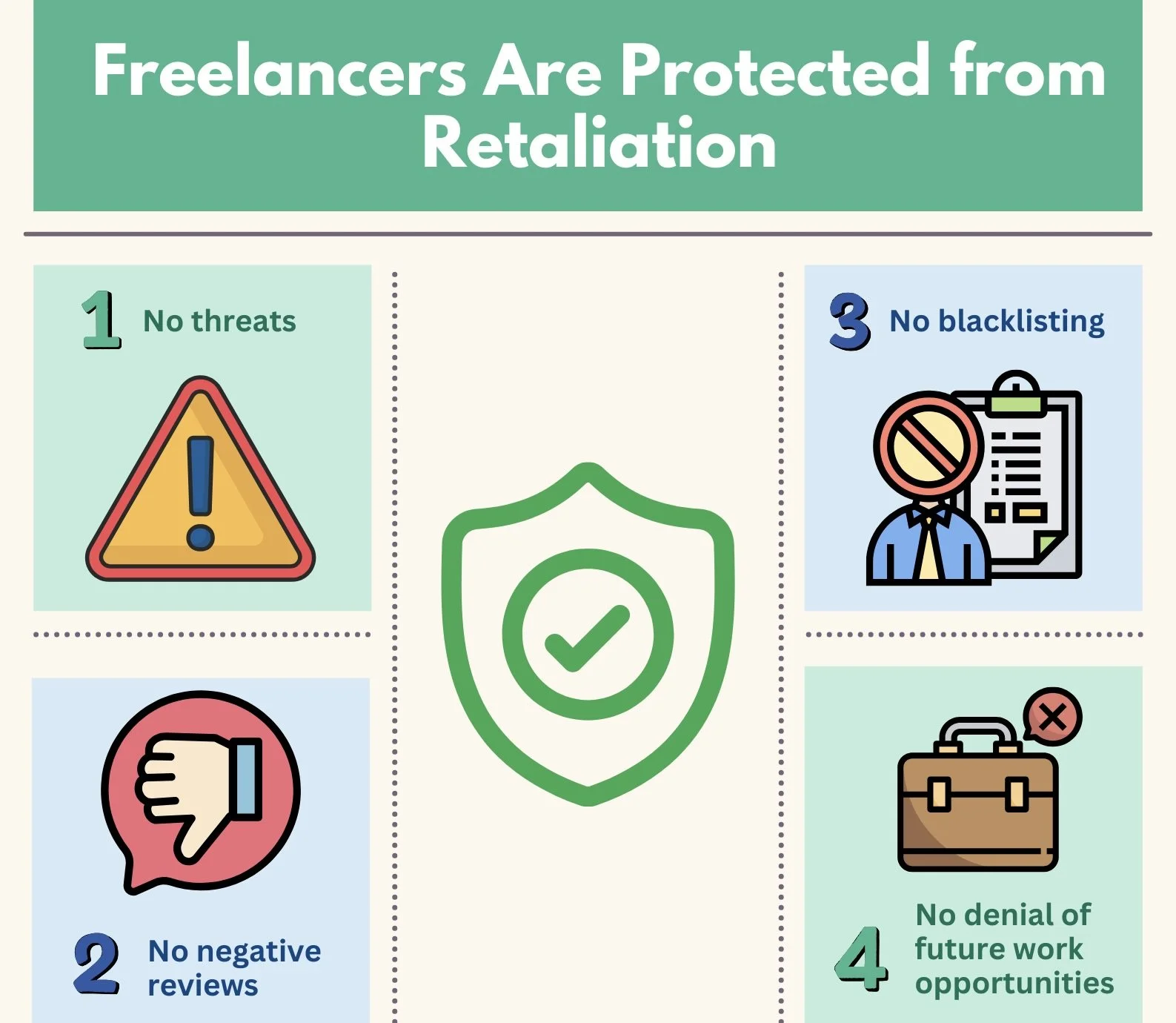Understanding The Freelance isn’t Free Act
As you grow your business, you may rely on independent contractors to fill certain roles. In New York, companies should be aware of the following considerations under the Freelance Isn’t Free Act, passed in 2017 in NYC, and expanded statewide in August 2024 under New York State's General Business Law Article 44-A.
Mandatory written contracts: All contracts worth $800 or more must be in writing. This includes all agreements between you and a freelance worker that total $800 in any 120-day period. Written contracts must spell out the work to be performed; the pay for the work; and the payment date. You and the freelance worker must keep a copy of any written contracts.
Payment requirements: Your company must pay the freelancers by the date specified in the contract. If no date is specified, payment is due within 30 days of completing the work. If a freelance worker is not paid on time, they can bring a civil action in court, and if the court found the employer violated the law, they can be liable for damages—double damages for late payment or nonpayment, as well as potential attorney’s fees.
Anti-retaliation provisions: The law prohibits companies from retaliating against freelancers who assert their rights under the law. Retaliatory actions can include threats, blacklisting, or negative reviews. Freelancers can file complaints with the New York City Department of Consumer and Worker Protection (DCWP) or the New York State Department of Labor. Additionally, they can pursue civil actions in court for violations, including non-payment or retaliation.
If a company does not comply with these provisions, they can face fines, penalties, and potential liability from civil legal actions. If you have specific questions about your agreements with independent contractors, let’s connect and make sure your business is protected.

